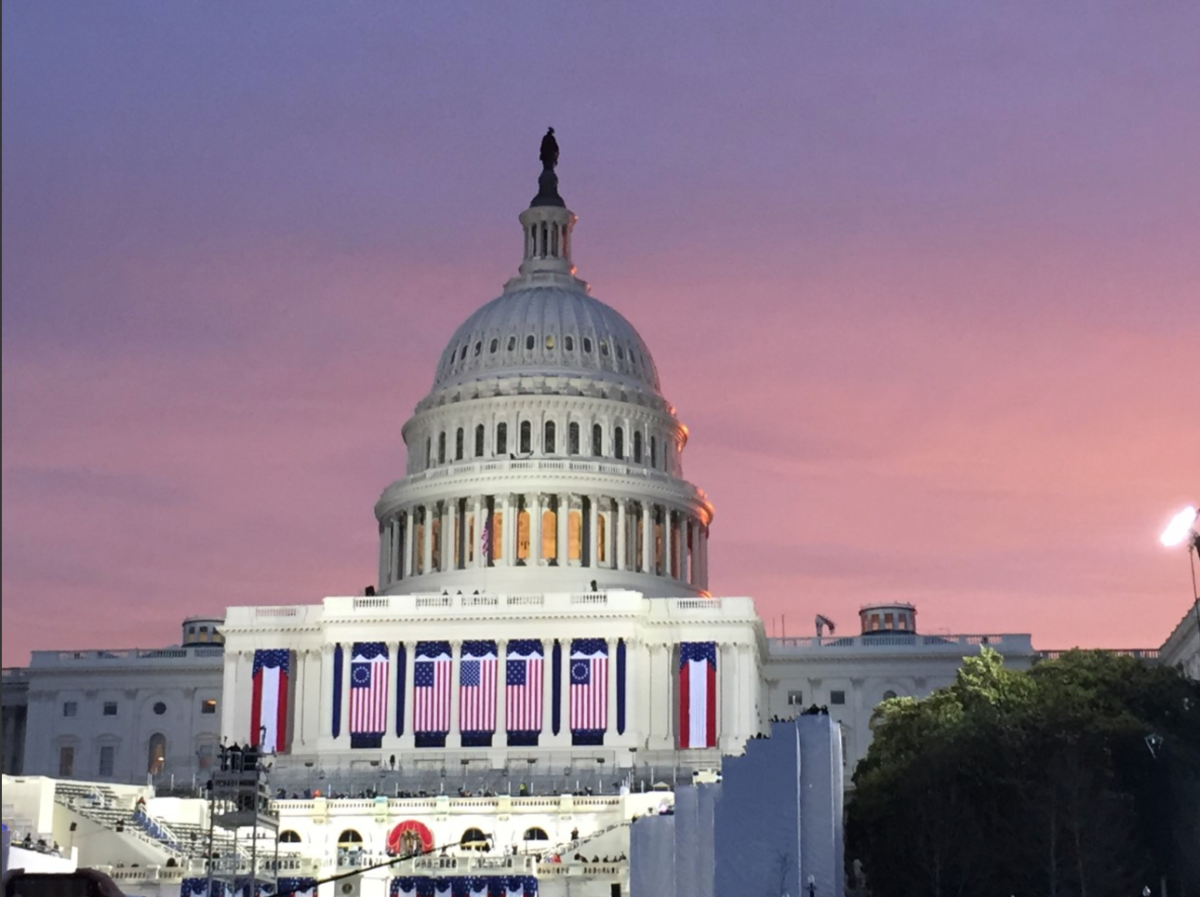Photo courtesy of Grace Dunn.
BY LÓRIEN MACENULTY
Sworn into office at noon on Jan. 20 at the Capitol’s West Front, President Donald Trump engaged in a traditional inauguration. Yet Drake students who attended the ceremony in Washington D.C. earlier this month said that it was anything but typical.
“I expected it to be a traditional inauguration, a ceremony, not professional, but important,” said Sarah Schroeder, a sophomore politics and strategic political communication major. “But it felt like a Trump rally and like people didn’t understand what was going on. Anytime anybody other than Trump was up, everybody was booing them, even if they were Republicans. And they were yelling ‘We want Trump,’ when the Mormon Tabernacle Choir was singing.”
Alex Freeman, another Drake student, had similar observations.
“(It was) absolutely packed, but very well organized and secure,” Freeman said. “The crowd, from what I heard from experienced inaugural attendees, was less patient than in the past.
“Attendees showed fervent support for America and were unwavering in their conviction that America is exceptional,” Freeman continued.
As this marked the students’ first in-person inauguration, both Schroeder and Freeman compared their experiences to that of their predecessors.
“Talking to my professors who have been to many inaugurations before, they said that they had never experienced anything like that,” Schroeder said. “It was very different.”
Professor of political science David Skidmore was not at the inauguration in person but remained engaged.
“The clips I saw and the account that I read about it suggested it was a pretty dark tone,” Skidmore said. “The vision of the United States that President Trump offered was a pretty negative portrayal of where we are as a country, and that’s unusual for an inauguration address.”
The visiting students were encouraged by supervisors to look at the event from an anthropologist’s standpoint, rather than political, and to observe rather than participate in favor or in protest of the new president.
“As someone who loves politics, it was awesome to be there and stand in front of the capitol and know that you are witnessing a transition of power,” Schroeder said. “It is something that is very unique to America and something that is unique to politics.”
President Trump’s first week of action continues to receive heightened media attention, notably the reinstatement of the abortion-related Mexico City Policy, the U.S. withdrawal from the Trans-Pacific Partnership and support for the Keystone and Dakota Access oil pipelines.
“Trump stands to challenge political orthodoxies in most every field of government affairs, but particularly foreign policy,” Freeman said. “His anti-globalist sentiment is the first rhetoric of the kind to come from the White House since the 1890s, save for a few select incidents. It is worth keeping a daily log of his executive orders, appointments and policy statements so we can quickly develop a comprehensive picture of where his administration intends to steer U.S. relations.”
Among the more controversial statements of last week are the Trump Administration’s use of “alternative facts” to downplay average turnout at the inauguration ceremony and a prospected major investigation into the possible influence of undocumented immigrants on the popular election vote.
“He and his press secretary and Kellyanne Conway have been lying, which is not good for democracy and not good for a political atmosphere,” Schroeder said. “We need to trust our president and trust our administration, and you can’t do that if they are lying to everyone all the time. No matter what you think about the president, you want to be able to trust him and know that he or she is doing what’s best for the country, and it’s hard to do that when they don’t tell the truth.”







